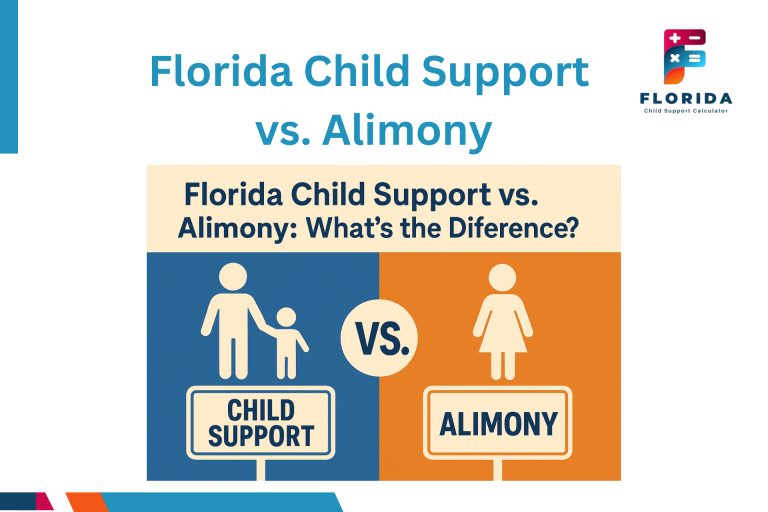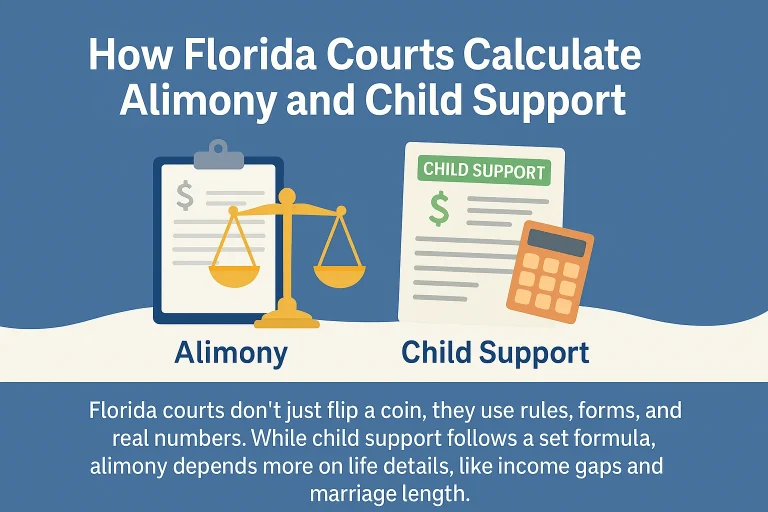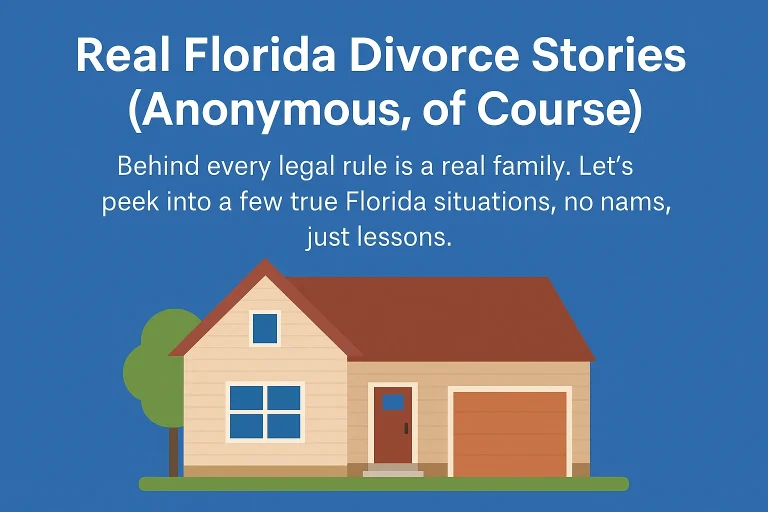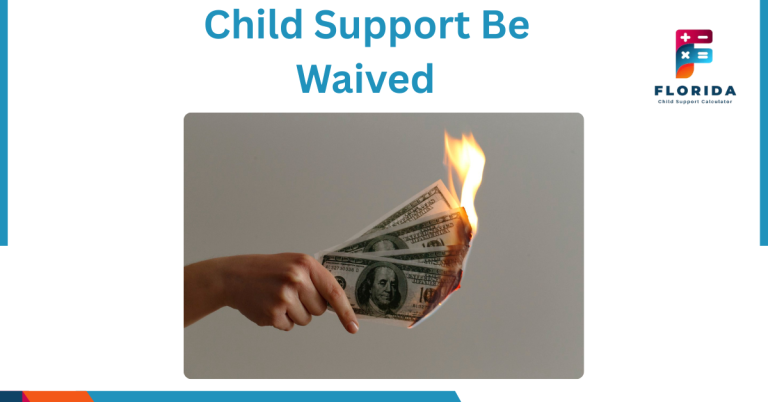Florida Child Support vs. Alimony: What’s the Difference?
Florida child support vs. alimony sounds confusing, right? But don’t worry, we’re breaking it down like a slice of pie. One piece goes to your child, the other to your ex. Simple! Whether you’re paying, receiving, or just curious, knowing the difference matters before the court surprises you. In Florida, child support is calculated based on income and parenting time, while alimony is based on marriage length and financial need.

And guess what? You might even owe both at the same time. So, buckle up, we’ll show you how Florida law, calculators, and court forms turn your money into fairness (or at least try to).
What Is Alimony and Why Does It Exist?
In Florida, alimony isn’t a punishment or a reward, it’s a legal way to help one spouse get back on their feet after divorce. Think of it like a financial bridge, helping someone cross from married life to independence.
Alimony in Simple Words
Alimony is money one ex-spouse pays to the other to cover basic needs after separation. It’s not forever (in most cases), and it’s not for fun. If one person earns a lot more or stays home raising kids, Florida law allows courts to step in and balance the scales.
Sometimes people confuse this with child support, but they’re not the same. Alimony is just between grown-ups, not for the kids.
Is Alimony Always Awarded in Florida?
Nope, alimony isn’t guaranteed. The judge looks at how long you were married, your incomes, and whether one of you truly needs help. In short marriages, you might not get alimony at all.
When calculating support, the court also checks if both people can survive financially. If not, help is given, but only after math and paperwork.
Is Alimony Taxable in 2025?
Here’s the good news (for the one receiving it): In 2025, alimony is not taxable income. The person paying it also can’t deduct it from taxes. This change came after the 2019 tax reform and still applies in Florida.
So, if you’re paying alimony and child support at the same time, don’t expect tax breaks; plan your budget wisely.
What Is Child Support in Florida?
Child support in Florida is money meant to take care of your kids, plain and simple. It’s not about the parents, it’s about making sure the child has food, clothes, school supplies, and a stable life after the split.
Who Pays and Who Receives It?
Usually, the parent who spends less time with the child pays the support. The one who handles the day-to-day parenting gets the money. It’s based on income, custody time, and Florida child support guidelines.
The idea is to keep things fair, so no matter where the child sleeps, their life stays steady.
How Long Does It Last?
Most of the time, child support in Florida continues until the child turns 18. If they’re still in high school and living at home, it can go until age 19.
But that’s not all, retroactive child support may apply if payments were missed before the official order began.
What If the Other Parent Doesn’t Pay?
If payments stop, it doesn’t just go away. Florida’s Department of Revenue (DOR) can step in. They can take tax refunds, suspend licenses, or even push for jail time if someone refuses to pay.
It’s important to follow the court order because missing payments can lead to serious consequences, not just for money, but for your legal record, too.
Florida Child Support vs. Alimony: Key Differences at a Glance
Now that we’ve seen both terms, let’s put them side-by-side. This will help you remember who pays what, and why. One is for kids. One is for exes. Both matter, and they follow different Florida rules.
Alimony vs. Child Support in Florida
| Feature | Alimony | Child Support |
|---|---|---|
| Who gets it? | Ex-spouse | Parent with more custody |
| Who decides it? | Judge’s discretion | Based on income + custody time |
| Taxable (2025)? | No | No |
| Lasts until? | Set by the court, may end early | Usually until the child turns 18 (or 19) |
| Can it be changed? | Sometimes | Yes, but only if major life changes occur |
| Enforced by | Court order | Florida DOR or court |
And don’t forget, you could be paying both, depending on your situation.
How Florida Courts Calculate Alimony and Child Support
Florida courts don’t just flip a coin, they use rules, forms, and real numbers. While child support follows a set formula, alimony depends more on life details, like income gaps and marriage length.

Alimony: What Judges Look At
Before setting alimony, judges ask questions like: “Was the marriage short or long?” “Does one person truly need help?” and “Can the other afford to give it?” It’s not guesswork, the court studies bank records, jobs, and budgets.
Your income matters, but so do other things. For example, if you supported your ex while they studied, that counts too. Florida’s factors influence support decisions, helping judges stay fair and consistent.
Child Support: Income Shares and Custody Time
Child support works more like a math problem. Florida uses the Income Shares Model, where both parents’ incomes are added up and divided based on how much time the child spends with each.
For example, if one parent earns 70% of the total income, they’ll pay more. But custody days also matter. This calculator-based approach helps remove guesswork and keeps things clear.
And yes, even if you see your child a lot, you might still have to pay support. It depends on numbers, not just time.
Can One Impact the Other?
Yes, alimony and child support can affect each other, especially when it comes to your total income. If you pay a lot in alimony, it might slightly lower your child support. But don’t count on it too much.
Some parents try to use alimony to escape child support, but courts don’t allow it unless the situation clearly calls for a change. Judges want both the ex-spouse and the child to stay supported.
The Role of Prenuptial Agreements
Prenups are legal promises made before marriage. In Florida, they can handle many money matters, but not everything. If you’re planning ahead, knowing what a prenup can and can’t control is smart.
Can Alimony Be Waived in a Prenup?
Yes, it can, if done right. Many couples add alimony rules in their prenup. They might agree on a certain amount or say no alimony at all. Courts often respect this unless it’s unfair.
Still, Florida judges check both sides’ financial truth before locking anything in. If one person didn’t understand the prenup or was pressured, it may not hold up.
What About Child Support?
Child support can’t be waived in a prenup, not now, not ever. It’s the child’s right, not the parents’ deal. Even if both parents agree, Florida law won’t allow it.
Judges only care about what’s best for the child. So, even if the prenup says “no support,” the court will still calculate and enforce it.
Real Florida Divorce Stories (Anonymous, of Course)
Behind every legal rule is a real family. Let’s peek into a few true Florida situations, no names, just lessons.

Paying Both Alimony and Child Support Isn’t Easy
One dad in Orlando found himself paying $1,200 in alimony and $850 in child support. He thought alimony would reduce the other, it didn’t. He said, “I had to move back in with my parents.”
In Florida, paying both is possible if the court believes both are fair. That’s why budgeting and planning ahead are key.
When Judges Adjust Support Based on Life Changes
Another mom lost her job and asked the court to lower her child support. Since her loss was permanent and involuntary, Florida allowed a modification. But it took proof, tax returns, job letters, everything.
Judges don’t change numbers just because life feels hard. They need facts, forms, and fairness.
5 Ways a Family Lawyer Can Help You Stay Sane
Going through child support or alimony issues in Florida can feel like solving a Rubik’s Cube blindfolded. That’s where a good family lawyer steps in, not just to handle paperwork, but to keep you from losing your cool.
They Know the Law, So You Don’t Have To
Laws around support change often. A lawyer keeps up with Florida child support guidelines so you don’t accidentally break a rule and hurt your case.
They’ll explain what matters most in court and tell you if your income is calculated for child support, no guesswork needed.
They Help You File the Right Forms
Filing the wrong form or missing a deadline can slow everything down. Lawyers know exactly which child support forms Florida courts accept and how to submit them properly.
They’ll also remind you of things like income affidavits and parenting plans, so nothing gets skipped.
They Can Help with Modifications
If you lose your job, get a raise, or your custody changes, a lawyer helps file for updates. Not all situations qualify, but Florida child support courts do allow modifications under big life changes.
Doing this alone is tricky. One mistake and the judge might say no.
They Make Negotiations Easier
When you and your ex don’t agree, it gets messy. A lawyer acts as a buffer, calm, clear, and focused on facts. Many disputes can be solved without going to court if handled the right way.
You don’t need to fight. You just need someone who knows how to talk law.
They Help You Avoid Penalties
Missing payments or breaking an order can get serious. A lawyer helps you stay in compliance so you don’t face license suspension or jail.
It’s not just about paying, it’s about paying smart and on time.
FAQs About Alimony and Child Support in Florida
Questions are normal, the law isn’t always black and white. Here are some quick answers to the biggest things people wonder when dealing with alimony or child support in Florida.
Can You Receive Both Alimony and Child Support?
Yes, you can. If the court sees that you need help and the child does too, both payments can be ordered. This is common when the other parent earns much more.
You don’t have to pick one, they’re for two different purposes.
Can Support Terms Be Negotiated Outside Court?
Yes, but only with care. You and your ex can agree on alimony terms through mediation. But child support must follow state rules, the judge has the final say, no matter what you agree privately.
So yes, negotiate, but never skip court approval.
What Happens If Someone Doesn’t Pay?
Florida doesn’t take this lightly. Missed payments can lead to wage garnishment, bank seizures, or even jail time. Child support enforcement is strong in Florida; they can suspend licenses and passports, too.
So don’t risk it. Stay current or ask for help if needed.
Can Child Support Clauses Be Added to a Prenup?
Nope. Prenups can’t control child support. Even if both parents agree to skip it, Florida law doesn’t allow it. The child’s right to support always comes first.
Alimony clauses, yes. Child support? Off-limits.
Conclusion
Alimony and child support may sound like two sides of the same coin, but they follow very different rules in Florida. One supports the child, the other supports the ex. You might be involved in both, and that’s okay.
Use what you’ve learned here, and if things feel too tangled, get legal help early. It can save you time, money, and stress later on.






